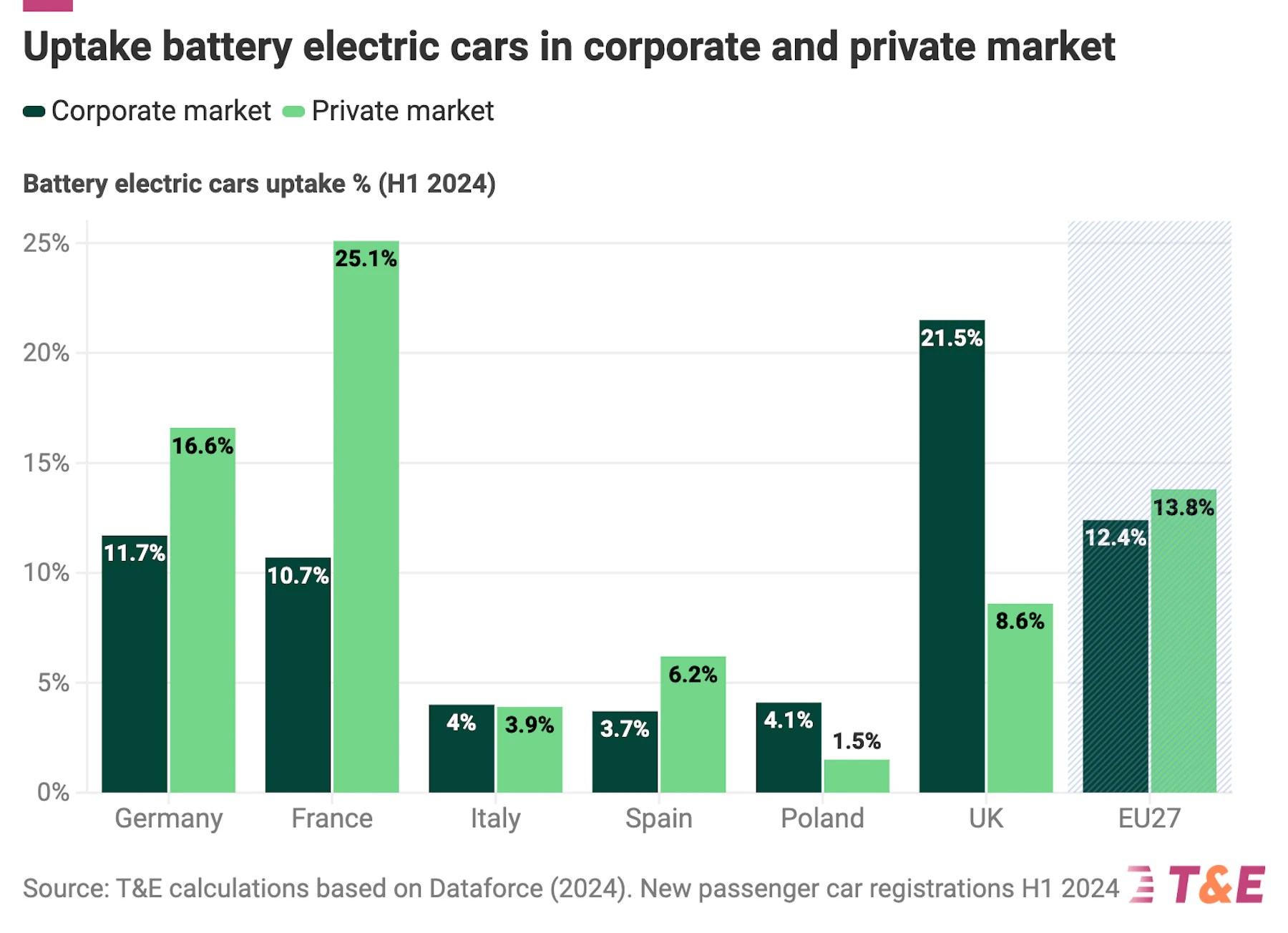As Europe moves to phase out fossil fuels, a new study finds that, ironically, the EU pours billions of dollars a year into subsidizing ICE vehicles – up to $42 billion ($45.60 billion) a year. How is this legal?
According to a new study, the European Union heavily subsidizes the purchase of new gasoline company cars – at $42 billion ($45.60 billion) a year. In Europe, the company's vehicles account for about 60% of new car sales.
In a new study, as reported by Reuters, the Environmental Resources Management (ERM) consultancy found that the five largest EU members spend 42 billion euros ($45.60 billion) annually on company car subsidies. of minerals. Environmental group Transport & Environment (T&E) wants more funding for EVs instead.
To reduce spending, Italy provides 16 billion euros of fossil fuel company car subsidies, followed by Germany, which provides 13.7 billion euros. France chips in 6.4 billion euros, while Poland pays 6.1 billion euros a year.
About 15 billion euros in the four countries go to subsidizing SUVs, the study found. In turn, company car drivers receive annual tax credits of €6,800, “ranging from €21,600 for the most polluting large models,” Reuters reported.
“This is completely absurd and completely unacceptable, that we are still pouring billions of taxpayers' money into technologies that are completely at odds with the European Commission's green transition agenda,” T&E aviation director Stef Cornelis told Reuters.
The biggest subsidy comes from ongoing benefit schemes that continue to promote petrol and diesel vehicles, T&C reports. But the tax benefits for ICE vehicles in the UK and Spain are very low, with the UK imposing heavy fines on petrol and diesel vehicles with high benefits, while drivers of electric vehicles pay lower taxes. The result: an increase in the company's electric car take-up, which now stands at 21.5%. In Spain, the tax benefits of company cars are similar to those of private cars, mainly due to the relatively high profit margin. But since Spain offers small incentives for companies to choose electric vehicles, corporate EV adoption is only 3.7%, T&E reports.

Meanwhile, EV sales in Europe have declined, as sales of BEVs fell 44% in the EU in August. Germany, the biggest EV market, reported a 69% decline, while France was down 33%, according to industry data reported to Reuters.
FTC: We use auto affiliate links to earn income. More.